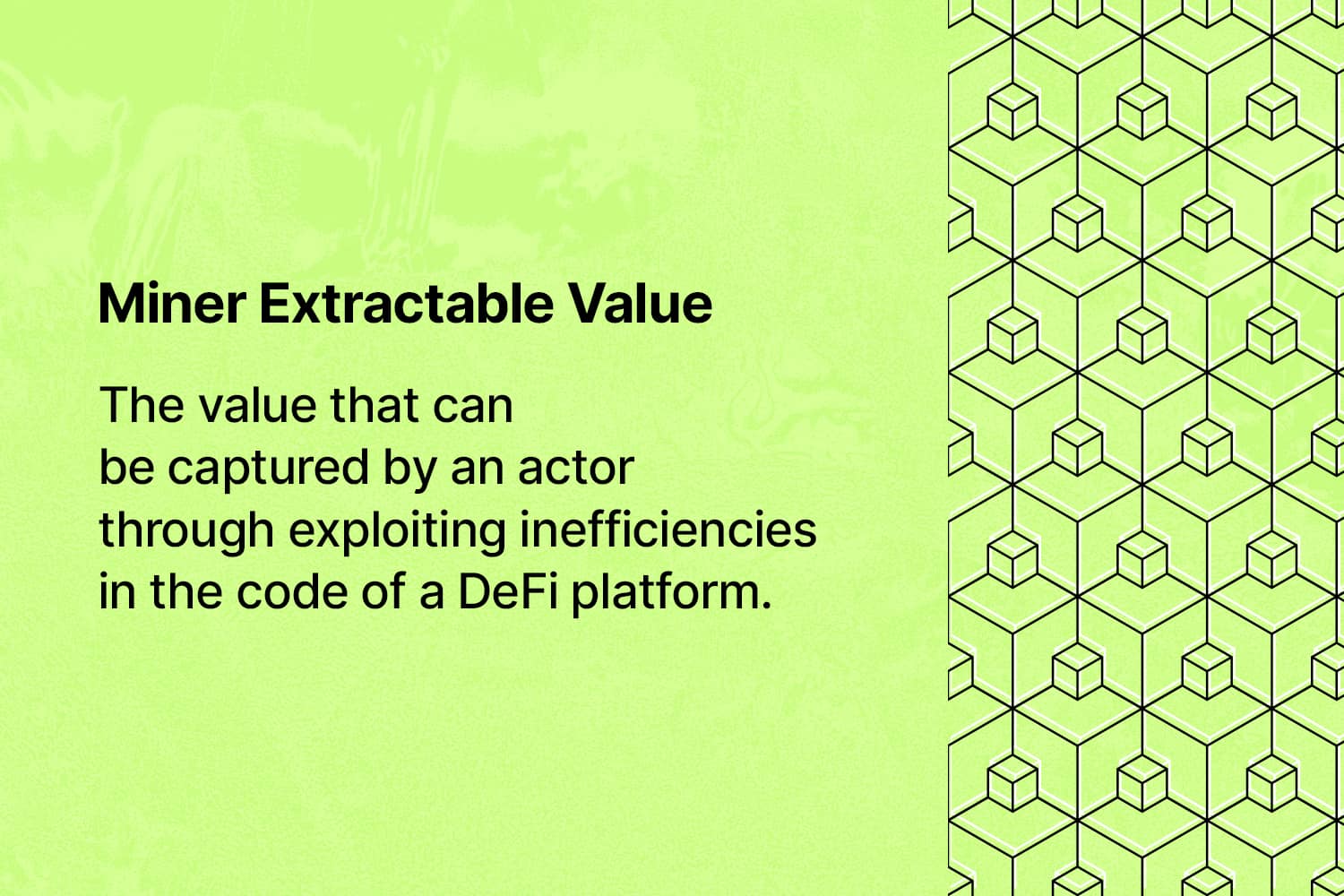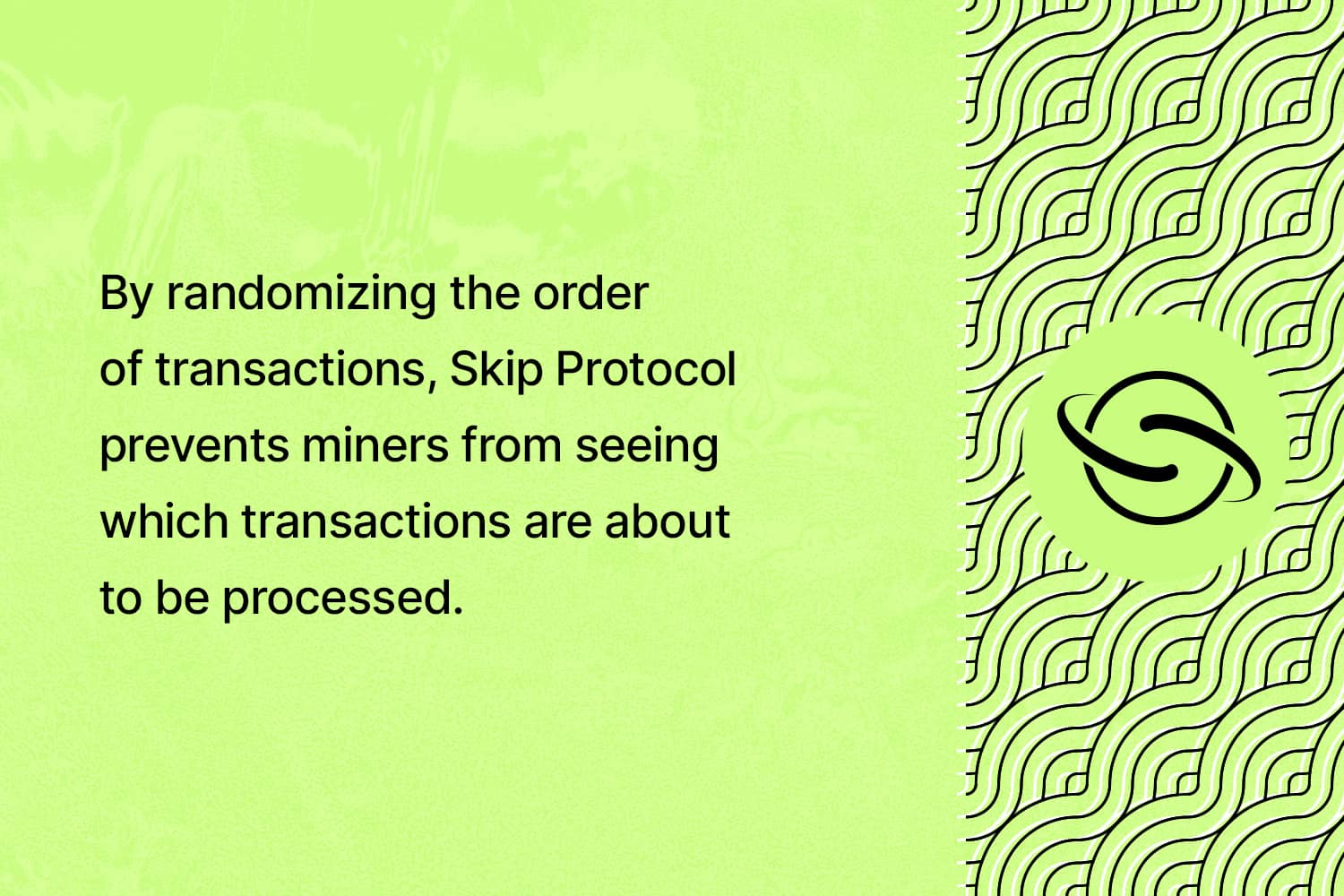MEV, or miner extractable value, is a concept that is becoming increasingly important in the DeFi ecosystem. The potential profit that can be extracted from a DeFi platform by exploiting loopholes or inefficiencies in the platform’s smart contract code is referred to as MEV.
What is MEV?

MEV refers to the value that can be captured by an actor through exploiting inefficiencies in the code of a DeFi platform. For example, an actor may be able to capture MEV by front-running transactions on a platform, or by taking advantage of flash loan transactions to capture arbitrage opportunities. The term “miner extractable value” refers to the ability of miners (the actors who validate transactions on a blockchain network) to extract value from the network through exploiting inefficiencies in the code.
How is MEV Generated?
MEV is generated by exploiting loopholes or inefficiencies in the code of DeFi platforms. For example, an actor may be able to front-run transactions on a platform by quickly executing their own transactions before the original transactions are validated. This allows the actor to capture a profit before the market has a chance to react. Another example of MEV generation is through flash loan transactions, where an actor can take advantage of price differences between DeFi platforms to capture arbitrage opportunities.
Impact on Decentralized Finance
The impact of MEV on the DeFi ecosystem is a topic of debate. On one hand, some argue that MEV extraction is an ethical way to profit from the ecosystem, incentivizing individuals and organizations to identify and report inefficiencies in the code of DeFi platforms. On the other hand, there are concerns that MEV extraction can reduce trust in the platform and its participants, making it more difficult for DeFi platforms to attract new users and investors. Additionally, some argue that MEV extraction can lead to centralization, as the profits generated from MEV extraction can be used to acquire a greater share of the network’s resources, giving a small group of actors greater control over the network.
Approaches to MEV extraction

There are several approaches to MEV extraction, including frontrunning, backrunning, arbitraging, and sandwiching. Here’s a brief overview of each approach:
Frontrunning
Frontrunning involves placing a transaction in the mempool (the pool of unconfirmed transactions) before a known transaction, taking advantage of the time delay between the transaction being broadcast and being confirmed. This allows the frontrunner to quickly execute a transaction and profit from the price movement before the market has a chance to react. Frontrunning can be achieved through the use of bots that monitor the mempool and automatically execute transactions.
Backrunning
Backrunning is similar to frontrunning, but instead of placing a transaction in the mempool before a known transaction, the backrunner places a transaction after a known transaction. This allows the backrunner to take advantage of the price movement caused by the known transaction and profit from it.
Arbitraging
Arbitraging involves taking advantage of price differences between different DeFi platforms. For example, an actor may notice that the price of a token is lower on one platform than on another platform and decide to buy the token on the lower-priced platform and sell it on the higher-priced platform to capture the price difference. Arbitraging can be done manually or through the use of bots.
Sandwiching
Sandwiching involves placing two transactions around a known transaction with the intention of capturing the profit generated by the price movement caused by the known transaction. The first transaction is placed before the known transaction, and the second transaction is placed after the known transaction. The idea is to capture the price movement caused by the known transaction and profit from it.
How Skip Protocol is addressing the effect of MEV

While the concept of MEV is controversial, it has become a significant part of the cryptocurrency landscape, and many projects are working to address it.
One project that is working to mitigate the effects of MEV is Skip Protocol. Skip Protocol is a decentralized platform that aims to protect users from the negative effects of MEV by providing a more secure and fair environment for transactions. The project aims to reduce transaction fees and make it more difficult for miners to exploit users.
Skip Protocol uses a unique algorithm that randomizes the order of transactions, making it difficult for miners to front-run or otherwise manipulate the order of transactions. By randomizing the order of transactions, Skip Protocol prevents miners from seeing which transactions are about to be processed, making it more difficult for them to exploit the system.
Skip Protocol also offers other features, such as a decentralized exchange (DEX) and a liquidity aggregator, which help users to access liquidity from multiple sources and reduce the impact of slippage. These features make it easier for users to trade on the platform, and reduce the costs associated with using decentralized exchanges.
While Skip Protocol is still a relatively new project, it has already gained a lot of attention in the cryptocurrency community. The project has attracted several high-profile investors and has been endorsed by several prominent figures in the industry.
In conclusion, the issue of MEV is a significant challenge for the cryptocurrency ecosystem, and projects like Skip Protocol are working to address it. By offering a more secure and fair environment for transactions, Skip Protocol has the potential to revolutionize the way users interact with the blockchain. Therefore, it is worth keeping an eye on this project as it continues to develop and grow.
Conclusion
MEV extraction is a complex and controversial topic in the DeFi ecosystem, and the approaches to MEV extraction are constantly evolving. It is important for individuals and organizations in the ecosystem to understand the different approaches to MEV extraction and the potential impact they can have on the ecosystem. As the DeFi ecosystem continues to evolve, it will be important to find ways to create a fair and equitable environment for all participants.

